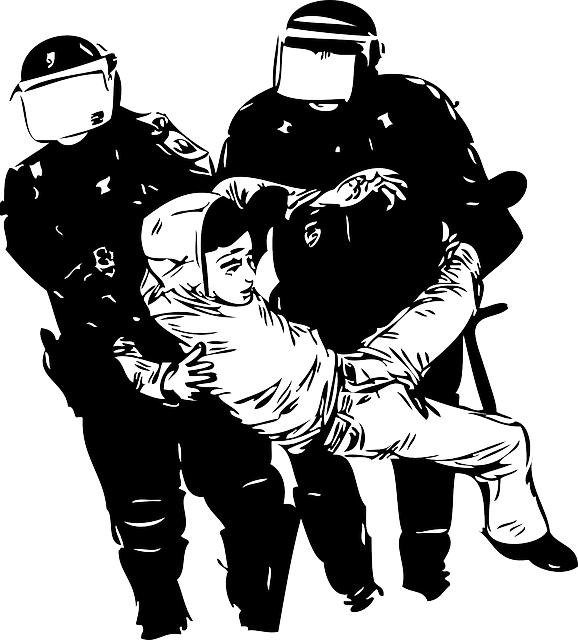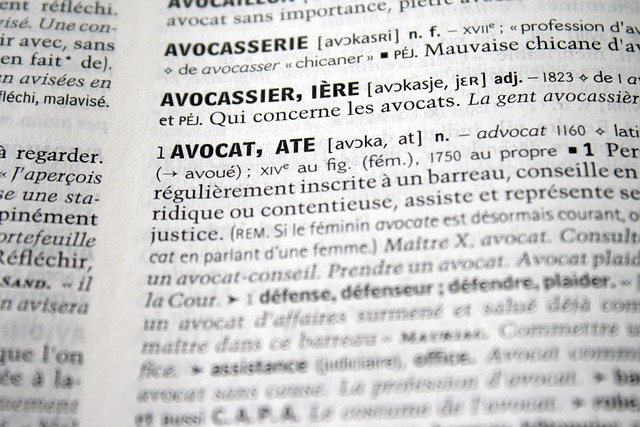Corporate Crime Investigations play a vital role in uncovering financial misconduct, especially in the real estate sector. Legal experts navigate complex legal terrain, utilizing their white collar defense knowledge and specialized tools to expose fraud, insider trading, and bribery. These investigations have significant economic impacts, leading to successful resolutions and setting precedents through the Real Estate Litigation Process. Embezzlement, fraud, and insider trading are common offenses, often stemming from internal audits or employee disclosures, and can result in substantial losses and legal action. The Real Estate Litigation Process Explained involves initial assessments, detailed investigations, and robust case building, aiming for fair outcomes. Case studies provide insights into navigating these complexities, demonstrating the strategic approaches needed to tackle white-collar crimes effectively.
Corporate Crime Investigations: Uncovering Wrongdoings, Ensuring Justice
In today’s complex business landscape, corporate crime investigations are crucial in upholding ethical standards and safeguarding stakeholders. This article provides an in-depth look at understanding these intricate processes, from initial complaints to the role of legal professionals and the impact of common types of corporate offenses.
We explore the step-by-step investigation process, including notable case studies, offering a comprehensive guide to the real estate litigation process explained.
- Understanding Corporate Crime Investigations: An Overview
- The Role of Legal Professionals in Corporate Crime Cases
- Common Types of Corporate Crimes and Their Impact
- The Investigation Process: From Complaint to Charges
- Case Studies: Notable Corporate Crime Investigations
Understanding Corporate Crime Investigations: An Overview

Corporate Crime Investigations delve into complex financial misdeeds within corporations and businesses, spanning various sectors including real estate. These investigations are crucial in uncovering fraudulent activities that can have severe economic implications, impacting not just companies but also investors and the broader community. The process involves meticulous examination of financial records, contracts, and other relevant documents to identify anomalies or irregularities.
Expert investigators employ a systematic approach, navigating intricate legal landscapes and utilizing specialized tools to assemble evidence. By achieving extraordinary results for his clients, these investigations hold corporate entities accountable for their actions. Across the country, they have successfully resolved cases involving accounting fraud, insider trading, and bribery, ensuring justice is served and setting precedents for future legal battles in the realm of real estate litigation process explained.
The Role of Legal Professionals in Corporate Crime Cases

In corporate crime investigations, legal professionals play a pivotal role, guiding clients through complex legal landscapes to navigate the real estate litigation process and beyond. Their expertise is crucial in white collar defense, where they must understand intricate financial transactions and their potential implications under the law. These professionals assist companies and individuals accused of corporate misconduct at every stage of the investigative and enforcement process.
They offer strategic advice, ensuring that clients’ rights are protected while helping them build a robust defense. Through meticulous analysis of evidence, legal professionals can uncover vulnerabilities in the prosecution’s case, ultimately aiming for winning challenging defense verdicts. Their skills in navigating regulations and legal precedents are instrumental in achieving favorable outcomes, whether through negotiation or representation in court.
Common Types of Corporate Crimes and Their Impact

In the realm of corporate crime investigations, several types of illicit activities often come to light. Embezzlement, a common practice where company funds are misappropriated by employees, can have severe repercussions for businesses and their investors. Additionally, fraud, including accounting fraud and false financial reporting, has led to some of the most high-profile corporate scandals, resulting in significant financial losses and damage to reputations. Another notable crime is insider trading, where individuals with access to confidential information use it to gain unfair advantages in stock markets. These offenses not only have legal implications but also disrupt the integrity of business operations and erode public trust.
The impact of such crimes can be devastating, leading to substantial financial losses, lawsuits like Real Estate Litigation Process Explained, and even the complete dismissal of all charges or winning challenging defense verdicts for those accused. An unprecedented track record of successful defenses highlights the importance of robust internal controls and legal strategies in mitigating these risks. Organizations must remain vigilant and implement effective compliance measures to safeguard against such criminal activities.
The Investigation Process: From Complaint to Charges

The corporate crime investigation process begins with a complaint or allegation, which may arise from internal audits, employee disclosures, regulatory bodies, or external sources. Once received, authorities conduct an initial assessment to determine the severity and jurisdiction of the potential offense. This stage involves gathering preliminary evidence and deciding whether to pursue a full-scale investigation.
If the initial review warrants further action, a detailed probe commences. Investigators collect and analyze financial records, digital evidence, witness statements, and other relevant documents. This meticulous process aims to build a robust case against corporate entities or individuals involved. The goal is not merely to establish guilt but also to ensure fairness through a comprehensive understanding of the circumstances leading up to the alleged crime. Ultimately, this leads to either a complete dismissal of all charges or a solid foundation for a general criminal defense strategy in white-collar cases.
Case Studies: Notable Corporate Crime Investigations

In the realm of corporate crime investigations, notable case studies offer valuable insights into the complexities and outcomes of such pursuits. One prominent example involves a major real estate development company accused of fraud in the Real Estate Litigation Process Explained. Through meticulous investigation, authorities uncovered a web of false representations and material omissions, leading to significant financial losses for investors. This case highlights the importance of due diligence and underscores the far-reaching consequences of corporate misconduct.
The successful prosecution of such cases requires a strategic approach, combining legal expertise with robust investigative techniques. A white collar defense team must navigate intricate financial records, witness interviews, and regulatory compliance to build a solid defense. Achieving extraordinary results in these investigations demands an unprecedented track record of analyzing complex data, identifying key evidence, and presenting compelling arguments. By examining these case studies, professionals gain a better understanding of the challenges and potential outcomes in corporate crime investigations.
Corporate crime investigations are complex processes that require a multifaceted approach, involving legal professionals, regulatory bodies, and law enforcement. As seen in various case studies, these probes can have significant impacts on businesses, their leaders, and the broader community. Understanding the investigation process, from initial complaints to charges, is crucial for both victims seeking justice and companies aiming to maintain integrity. By recognizing common types of corporate crimes and leveraging the expertise of legal professionals, we can navigate these intricate cases more effectively, fostering a culture of accountability and transparency in the business world.






